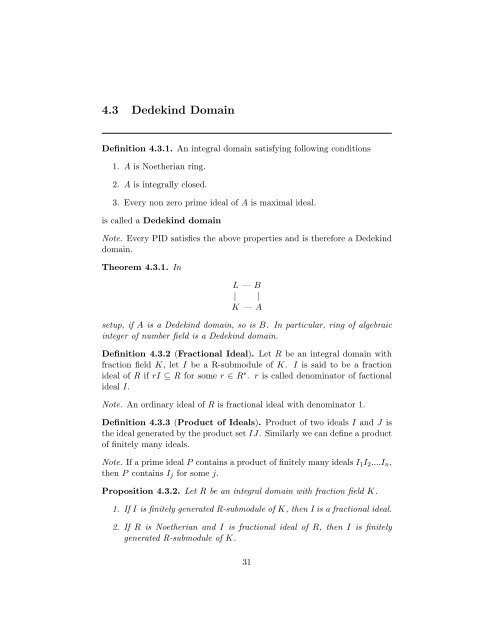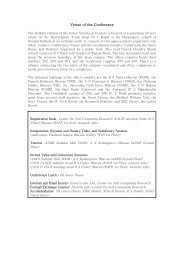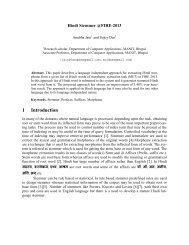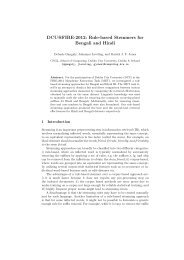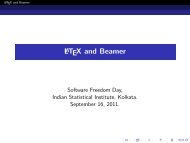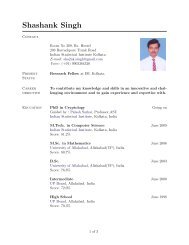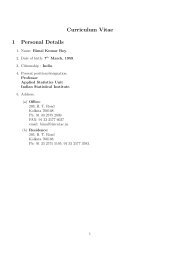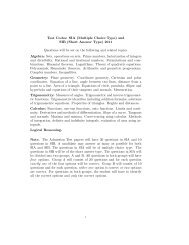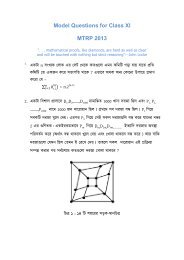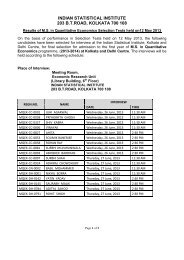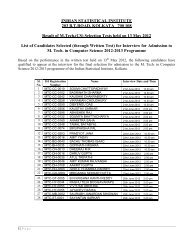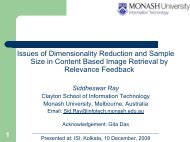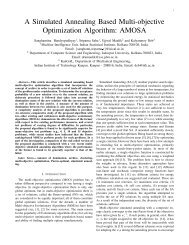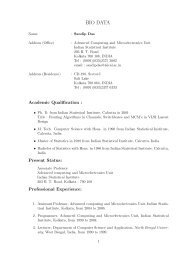Abstract Algebra and Algebraic Number Theory
Abstract Algebra and Algebraic Number Theory
Abstract Algebra and Algebraic Number Theory
You also want an ePaper? Increase the reach of your titles
YUMPU automatically turns print PDFs into web optimized ePapers that Google loves.
4.3 Dedekind Domain<br />
Definition 4.3.1. An integral domain satisfying following conditions<br />
1. A is Noetherian ring.<br />
2. A is integrally closed.<br />
3. Every non zero prime ideal of A is maximal ideal.<br />
is called a Dedekind domain<br />
Note. Every PID satisfies the above properties <strong>and</strong> is therefore a Dedekind<br />
domain.<br />
Theorem 4.3.1. In<br />
L — B<br />
| |<br />
K — A<br />
setup, if A is a Dedekind domain, so is B. In particular, ring of algebraic<br />
integer of number field is a Dedekind domain.<br />
Definition 4.3.2 (Fractional Ideal). Let R be an integral domain with<br />
fraction field K, let I be a R-submodule of K. I is said to be a fraction<br />
ideal of R if rI ⊆ R for some r ∈ R ∗ . r is called denominator of factional<br />
ideal I.<br />
Note. An ordinary ideal of R is fractional ideal with denominator 1.<br />
Definition 4.3.3 (Product of Ideals). Product of two ideals I <strong>and</strong> J is<br />
the ideal generated by the product set IJ. Similarly we can define a product<br />
of finitely many ideals.<br />
Note. If a prime ideal P contains a product of finitely many ideals I 1 I 2 ....I n ,<br />
then P contains I j for some j.<br />
Proposition 4.3.2. Let R be an integral domain with fraction field K.<br />
1. If I is finitely generated R-submodule of K, then I is a fractional ideal.<br />
2. If R is Noetherian <strong>and</strong> I is fractional ideal of R, then I is finitely<br />
generated R-submodule of K.<br />
31


